
In Medicaid, delivering care needs to address the lack of resources and other socioeconomic factors that impact patients, said Steve Evans, MD, chief medical officer of SilverSummit at Centene.

In Medicaid, delivering care needs to address the lack of resources and other socioeconomic factors that impact patients, said Steve Evans, MD, chief medical officer of SilverSummit at Centene.
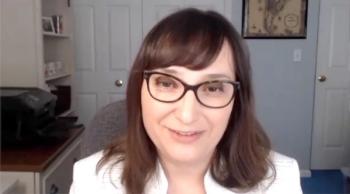
Roxana Siles, MD, FAAAAI, staff in the Department of Allergy and Immunology at Cleveland Clinic and codirector of the Asthma Center at Cleveland Clinic, addresses the factors that contribute to necessitating multispecialty management of patients with chronic cough.

Camille Hertzka, vice president, head of oncology, US Medical, AstraZeneca, clarifies testing for the HRR mutation in metastatic castrate-resistant prostate cancer (mCRPC) and the predictive importance of radiographic progression-free survival (rPFS) for overall survival in this setting.

Marc-Andre Cornier, MD, professor and director of the Division of Endocrinology, Diabetes and Metabolic Diseases at the Medical University of South Carolina, outlines the necessary components for a successful weight loss program.

On this episode of Managed Care Cast, Perry N. Halkitis, PhD, MS, MPH, dean of the Rutgers School of Public Health, discusses training the next generation of public health professionals.
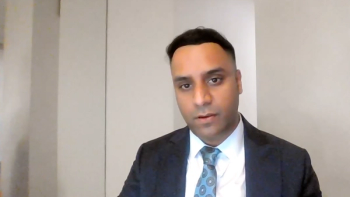
While teprotumumab, a new FDA-approved therapy for thyroid eye disease (TED), has its adverse events, the other options to treat TED can have severe consequences, said Shoaib Ugradar, MD, UCLA Stein Eye Center Santa Monica.

Stephen Schleicher, MD, MBA, chief medical officer of Tennessee Oncology, talks about lessons learned from the Oncology Care Model (OCM) and Medicare that are being used to innovate toward value-based care.

Bernice Kwong, MD, clinical professor of dermatology, Stanford University, talks about how later diagnosis and treatment for graft-versus-host disease (GVHD) affects disease progression and overall patient outcomes.
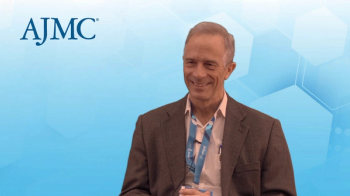
Robert Sidbury, MD, MPH, Chief, Division of Dermatology, Seattle Children's Hospital, discussed how new guidelines issued by the American Academy of Dermatology (AAD) regarding comorbidity risk in patients with atopic dermatitis will influence the condition's treatment.

Chelsee Jensen, PharmD, pharmaceutical formulary manager at the Mayo Clinic, provides her take on why practices will have to continue to stock multiple biosimilars for the same reference product.

Stephen Rozzo, PhD, associate vice president and head, Biologics Medical Affairs, Sun Pharma, North America, explains tildrakizumab’s mechanisms of action in the treatment of psoriasis and how the drug differs from other approved biologics.
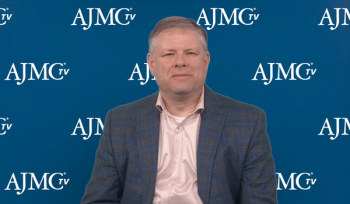
Dennis P. Scanlon, PhD, professor of health policy and administration at Pennsylvania State University and editor-in-chief of The American Journal of Accountable Care®, talks about major systemic and fundamental barriers to health systems becoming learning health systems.

Marc-Andre Cornier, MD, professor and director of the Division of Endocrinology, Diabetes and Metabolic Diseases at the Medical University of South Carolina, explains recent research on a behavioral weight loss intervention.
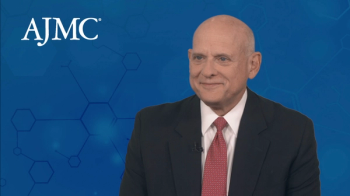
The acceleration of science and medicine is exciting, but these new advances are not always moving into practice, said Jorge Plutzky, MD, director of the Vascular Disease Prevention Program and director of Preventive Cardiology at Brigham and Women’s Hospital, and associate professor of medicine at Harvard Medical School.

Patients who cardiologists see once every few months are getting handed over to pharmacists who can monitor them more frequently and get them to their goals, said Crystal Zhou, PharmD, assistant professor of Clinical Pharmacy at the University of California, San Francisco (UCSF).

On this episode of Managed Care Cast, Consuelo Wilkins, MD, MSCI, discusses efforts to improve racial and ethnic disparities in US chronic disease rates.
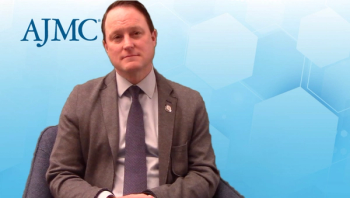
Patients often have comorbidities that make it important to consider them holistically and not bucket them into one disease state, and the findings on rivaroxaban show broad benefits and a favorable risk-benefit profile, said Marc Bonaca, MD, MPH, of CPC Clinical Research and CPC Community Health and the University of Colorado School of Medicine.

Many of the accountable care organization (ACO) models are being tested to find changes to make to the Medicare Shared Savings Program, but there is a general problem with short-lived models ending and being replaced by new ones, said Michael Chernew, PhD.
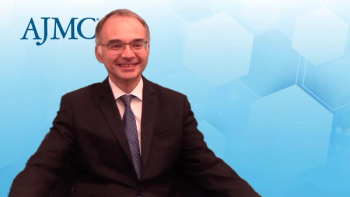
Treating children with familial hypercholesterolemia (FH) early can help reduce progression of atherosclerosis without adverse events related to growth and development, said Raul Santos, MD, PhD, director, Lipid Clinic at the Heart Institute, and associate professor, University of São Paulo Medical School, Brazil.

Even as virtual care has dropped from the peaks at the beginning of the pandemic, some aspects of it will not go away in cardiology care, said Dipti Itchhaporia, MD, FACC, the 70th president of the American College of Cardiology.

Melissa Johnson, MD, program director of Lung Cancer Research at Sarah Cannon, discusses the need for increased lung cancer screening among patients who have no tobacco use history.

Certain types of ophthalmic care were more successful with video visits based on what was required to treat patients, said Darren Chen, MD student at Weill Cornell Graduate School of Medical Sciences.

Debra Patt, MD, PhD, MBA, executive vice president of Texas Oncology, explains recommendations for annual mammography screenings after COVID-19 vaccination and why guidelines differ for diagnostic visits.
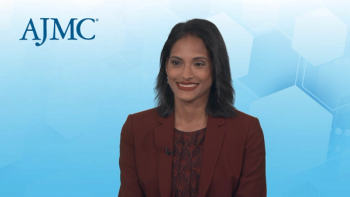
There is some confusion about the differences between the European and American guidelines on lowering low-density lipoprotein (LDL) cholesterol, but it’s clear that lower is better, said Pam Taub, MD, FACC, professor of medicine, Division of Cardiovascular Medicine, UC San Diego School of Medicine.
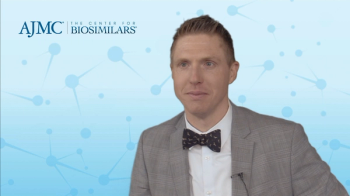
Ryan Haumschild, PharmD, MS, MBA, director of pharmacy services at Emory Healthcare and Winship Cancer Institute, explains how payers can play an essential role in improving biosimilar adoption.

William Schaffner, MD, medical director at the National Foundation for Infectious Diseases (NFID), and Patsy Stinchfield, RN, MS, CPNP, president-elect of NFID, discuss health care disparities related to respiratory syncytial virus (RSV), as well as solutions to close these gaps.

A child’s schooling is affected by the impact of eosinophilic esophagitis (EoE), explained Colette Romero, whose son has the disease.

Camille Hertzka, vice president, head of oncology, US Medical, AstraZeneca, discusses why so much excitement has been generated for the use of olaparib (Lynparza) in the first line for patients with metastatic castrate-resistant prostate cancer.

Zahra Mahmoudjafari, PharmD, BCOP, clinical pharmacy manager at the University of Kansas Health System, gives her take on what payers should keep in mind when dealing with chimeric antigen receptor (CAR) T-cell therapies.

Pipeline forecasting can provide payers better insight into which expensive specialty drugs coming down the pipeline they should be keeping their eyes on, according to Katie Lockhart, MA, manager at Magellan Health.

259 Prospect Plains Rd, Bldg H
Cranbury, NJ 08512
© 2025 MJH Life Sciences®
All rights reserved.
